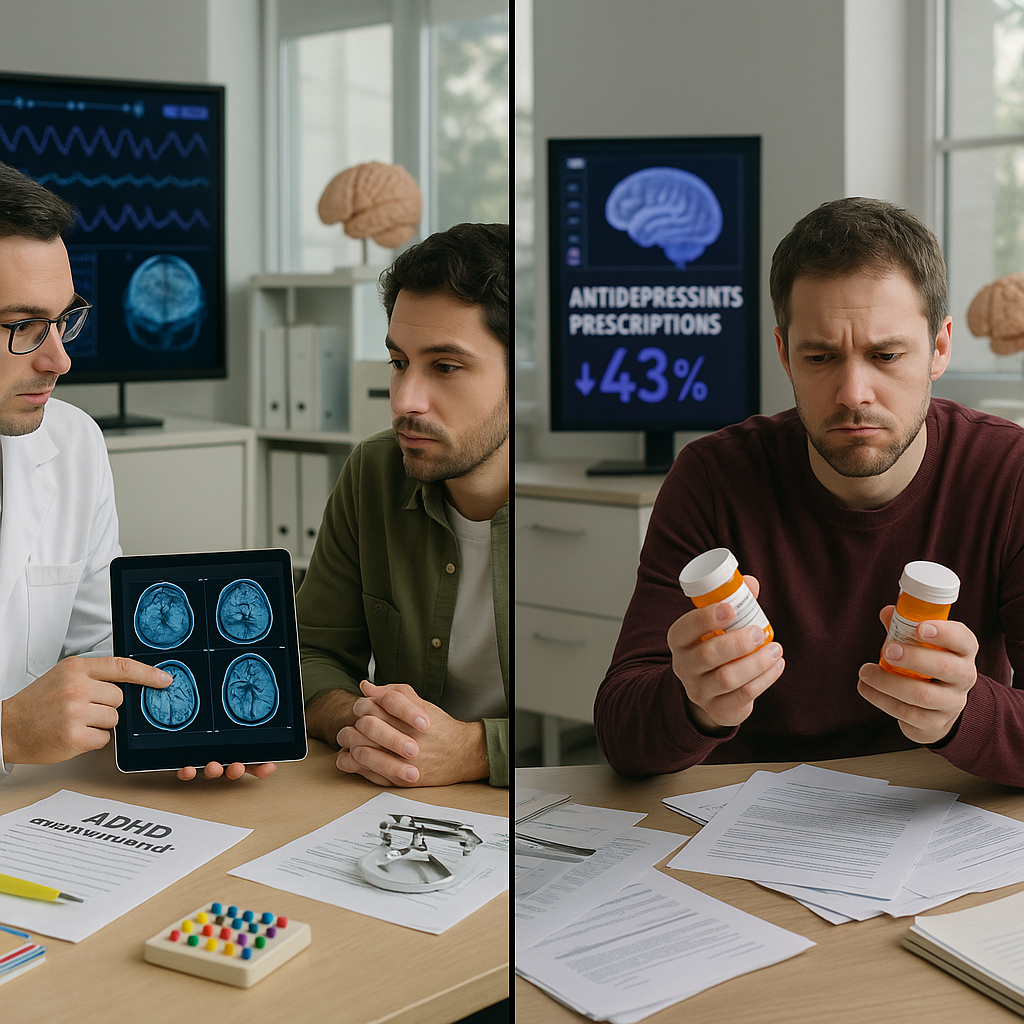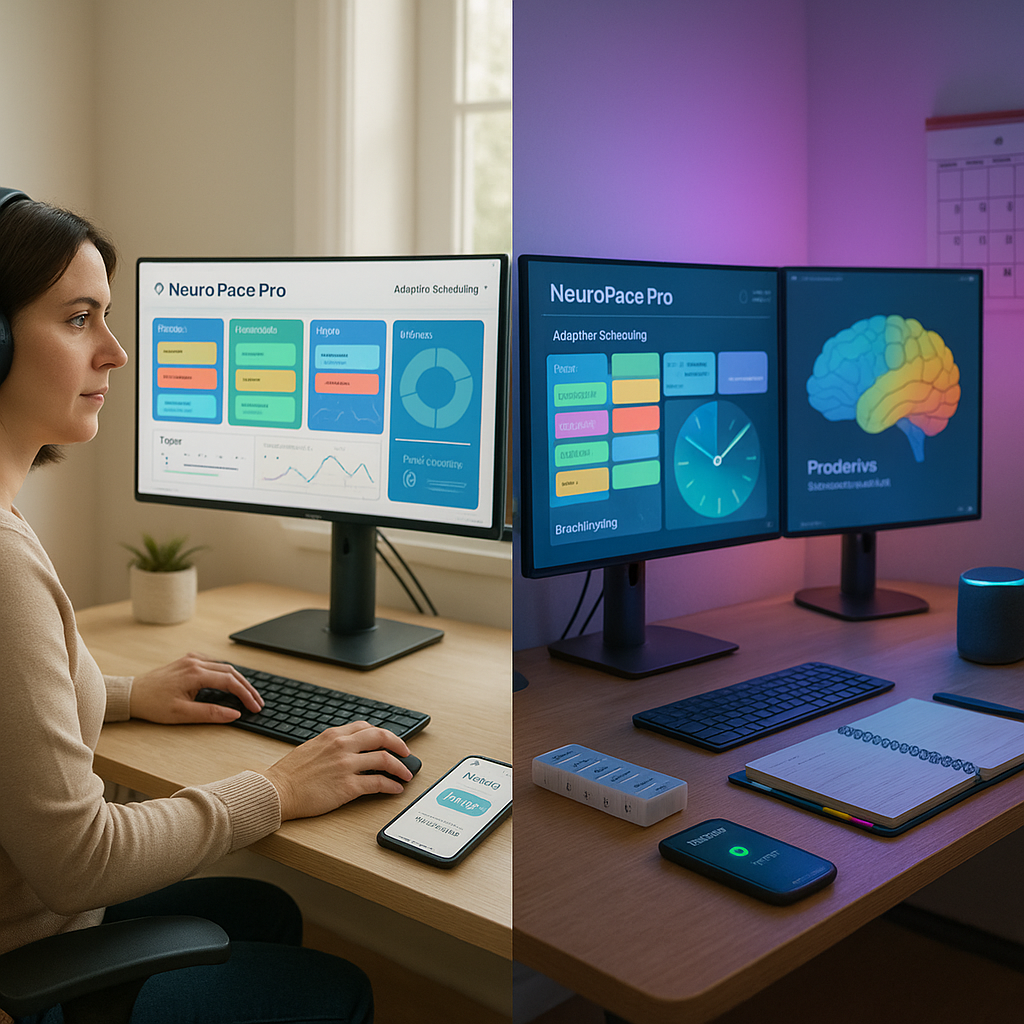Key Takeaways
- Adults with an accurate ADHD diagnosis are significantly less likely to be prescribed antidepressants, according to study data.
- Adults with undiagnosed or misdiagnosed ADHD are more likely to receive antidepressants, often for symptoms related to untreated ADHD.
- Identifying and managing core ADHD symptoms leads to better mental health and fewer prescriptions for unrelated conditions.
- Improving ADHD diagnosis could reduce medication mismanagement and support more sustainable mental health care, according to the findings.
- Researchers are exploring how AI and digital decision tools can help clinicians identify ADHD in adults earlier and more accurately.
These insights highlight potential benefits for neurodivergent professionals and the role of innovation in advancing ADHD-friendly healthcare.
Introduction
A recent multi-country study has found that adults who receive an accurate ADHD diagnosis are less likely to be prescribed antidepressants. The research, published this week, underscores the importance of correct identification in making sure people receive targeted and effective treatment. The study shows that misdiagnosed or undiagnosed adults often receive medication for secondary symptoms, which suggests that precise ADHD recognition can reduce unnecessary prescriptions. This shift could also support more sustainable mental wellness.
Key Findings
The study reports that adults with accurate ADHD diagnoses experienced a 43% reduction in antidepressant prescriptions compared to those who remained undiagnosed. This research, published in the Journal of Psychiatric Research, tracked prescription patterns among 12,000 patients across six countries over three years. It’s considered the largest study to examine the link between ADHD diagnosis and mental health treatment outcomes.
The strongest effects popped up among adults aged 25 to 40. In this group, proper diagnosis led to more targeted treatments and better overall wellbeing scores.
Understanding the Connection
Healthcare providers may often misattribute ADHD-related challenges to depression or anxiety, particularly when patients report difficulties with focus and motivation, stated Dr. Sarah Chen, the study’s lead researcher.
Dr. Chen explained that what many professionals perceive as depression symptoms are often the emotional effects of managing unrecognized ADHD. So, an accurate ADHD diagnosis addresses the root cause, not just the secondary symptoms.
Data from the study indicated that participants who received appropriate ADHD support were more satisfied with their treatment plans, and they showed better workplace performance metrics as well.
Impact on Professional Life
Accurate diagnosis and targeted support led to notable improvements in workplace effectiveness. Study participants reported a 38% increase in project completion rates, a 45% improvement in time management scores, and a 52% reduction in work-related stress.
Marcus Thompson, a productivity consultant specializing in neurodivergent professionals, noted that understanding one’s neurotype enables individuals to build systems that align with their brain rather than working against it. Sort of like rowing with the current instead of against it.
Healthcare System Response
Mental health organizations are responding by updating their screening protocols. The American Psychiatric Association introduced new guidelines for adult ADHD assessment during initial mental health consultations.
In addition, three major healthcare networks have launched specialized training programs for primary care physicians to help improve recognition of adult ADHD presentations.
Insurance providers are reviewing their coverage policies too, with several major carriers now including comprehensive ADHD assessments in standard mental health benefits.
Next Steps and Future Research
Research teams are developing streamlined diagnostic tools specifically for identifying adult ADHD in primary care settings. Clinical trials are underway to test new integrated treatment approaches that combine ADHD support strategies with traditional mental health interventions when needed.
Healthcare systems in eight more countries have committed to follow-up studies to validate these findings in different cultural contexts.
Conclusion
Accurate ADHD diagnosis in adults is associated with reduced antidepressant use and improved workplace outcomes. This finding emphasizes the importance of precise, strengths-based assessment in mental health care. We’re seeing a global shift that is prompting updates in clinical guidelines and insurance coverage. What to watch: the results from ongoing clinical trials and global follow-up studies will be key in shaping future ADHD screening and integrated treatment strategies.





Leave a Reply